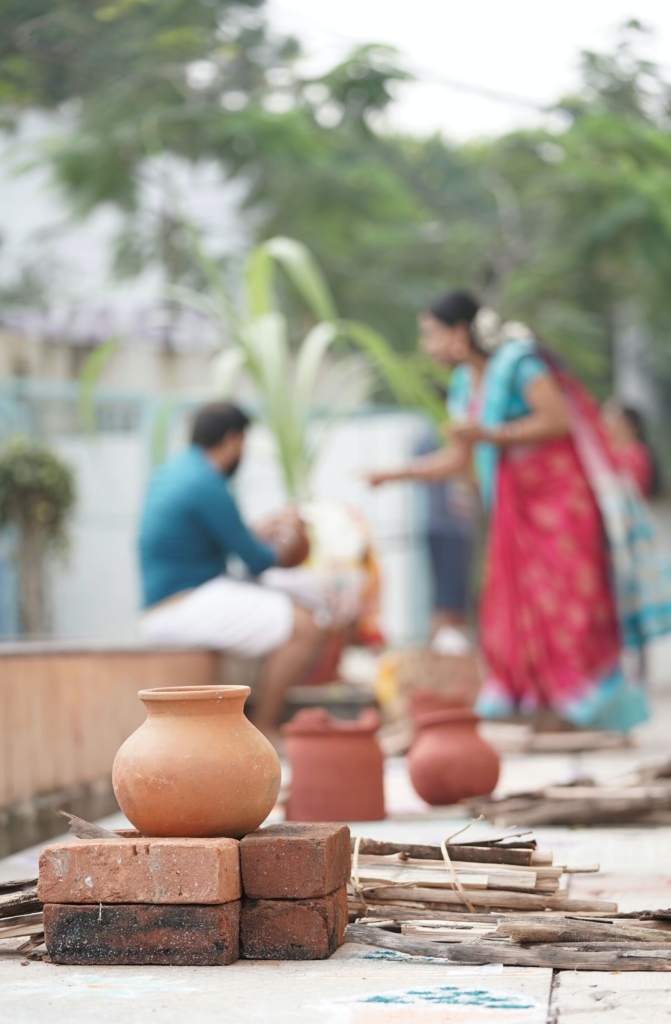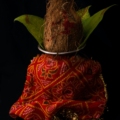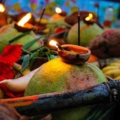Pongal, a prominent festival in South India, is a vibrant celebration of the harvest season. Typically held from January 14th to January 17th, It is a four-day extravaganza that radiates joy and cultural richness.
Immerse yourself in the vibrant traditions, the four-day harvest festival in South India! From the ceremonial preparation of the symbolic dish to the cultural festivities of Bhogi, Thai Pongal, Mattu Pongal, and Kaanum Pongal, each day is a celebration of abundance, gratitude, and cultural richness. Explore India Trails invites you to experience the warmth of South India’s hospitality, traditional music and dance performances, and the flavours of this festival. Join us in celebrating the agrarian way of life and the cultural tapestry of this joyous festival.

The festival’s name, “Pongal,” is derived from the Tamil word “Pongu,” which means “to boil over.” It’s a fitting name as one of the festival’s highlights is the preparation of a special dish called “Pongal.” This dish is made by boiling newly harvested rice with milk and jaggery in a clay pot until it overflows, symbolizing abundance and prosperity.
This festivities commence with Bhogi, the day when people discard old belongings and welcome new ones. The main event, Thai Pongal, falls on the second day and involves cooking the ceremonial dish and offering it to the Sun God as an expression of gratitude. Mattu Pongal, the third day, is dedicated to honouring cattle, which play a vital role in agriculture. The final day, Kaanum Pongal is when families come together for reunions and outings.
The festival is also marked by colourful kolam (rangoli) designs, traditional music and dance performances, and cultural events that showcase South India’s rich heritage. It is not only a time for giving thanks for the harvest but also a chance for travellers to immerse themselves in South India’s culture, flavours, and traditions. It’s an experience that offers a deeper understanding of the region’s agrarian way of life and a warm welcome from the hospitable people of South India.


